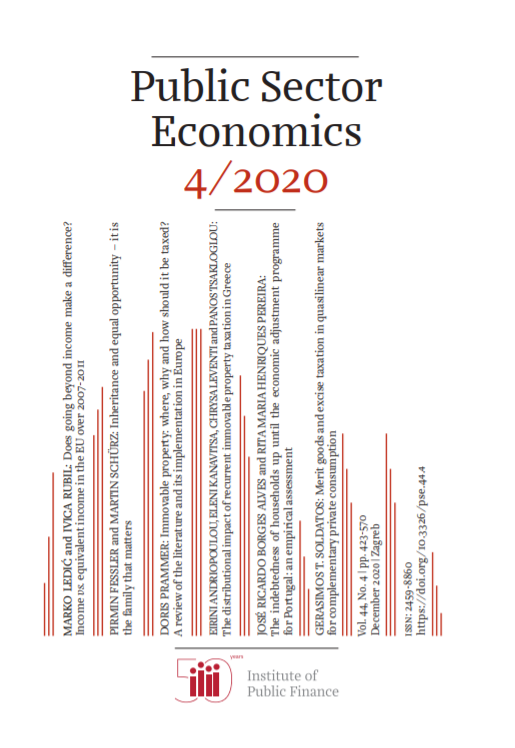Does Going Beyond Income Make a Difference? Income vs. Equivalent Income in the EU over the Great Recession
Keywords:
well-being, multi-dimensional, equivalent income, social welfare, non-income dimensionsAbstract
We study whether taking into account non-income dimensions along with income while measuring individual well-being matters for cross-country welfare comparisons. We focus on the 27 EU member states over the period 2007-2011, using data from the European Quality of Life Survey. Individual well-being is measured by equivalent income, which is equal to the actual income minus the monetary value of suffering from not having the best achievements in non-income dimensions. Cross-country comparisons of these statistics and their growth rates show that going “beyond income” makes a substantial difference. We find that when social welfare is measured by an index sensitive to both mean well-being and its inequality, leaving out non-income dimensions, especially health, from well-being measurement, would leave unexplained more than half of cross-country variation in social welfare. Taking non-income dimensions into account affects more the part of social welfare that is inequality-sensitive than the one that is mean sensitive.
Additional Files
Published
How to Cite
Issue
Section
License
Copyright (c) 2020 Marko Ledić, Ivica Rubil

This work is licensed under a Creative Commons Attribution-NonCommercial 4.0 International License.









